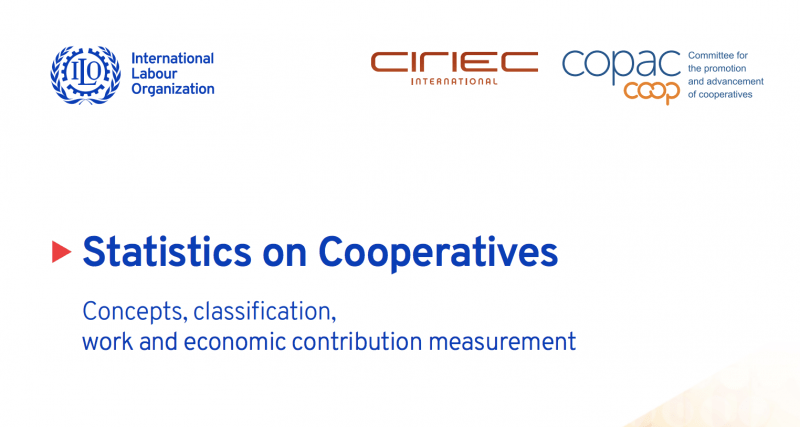We are pleased to share news of a new book relevant to…
Cooperative statistics: new book by the ILO, COPAC and CIRIEC

A new book on statistics of cooperatives presents ideas on what are the logics and arguments behind the Guidelines concerning statistics on cooperatives.
Co-authored by the ICA’s strategy and statistics coordinator, Hyungsik Eum, the book presents some of the work produced in 2017 and 2018 to support the development of the Guidelines concerning statistics on cooperatives.
The publication brings together updated versions of four background studies produced for the ILO and the Committee on the Promotion of Cooperatives (COPAC) in the process leading up to the adoption of the Guidelines concerning statistics of cooperatives at the 20th International Conference of Labour Statisticians (ICLS) in October 2018. Together with the guidelines, the book is intended to help statisticians to capture more information on key trends and challenges in the world of cooperatives.
The book aims to address the fact that data on cooperatives is collected in different ways, without harmonised definition for cooperatives and without referring to comparable classifications of these organisations.
ICA Strategy and statistics coordinator, Hyungsik Eum is a co-author of the book. In the second chapter he focuses – along with Marie J. Bouchard and Chiara Carini – on addressing the issue of classification. They propose a common classification framework to help producers and users of statistics to combine and compare data collected for different populations and periods, by different data collection methods or referring to various statistical units. The classification framework suggested helped to justify the types of cooperatives identified in the Guidelines.
“At the ILO and the ICA we need to work together to promote the guidelines,” said Mr Eum during a session at the ILO COOP Symposium. Read our report on the Symposium here.
He added that investing time and energy to promote the guidelines would help to achieve more recognition for cooperatives. He also pointed out that governments and national cooperative movements had a key role to play in producing data.
The book was published by International Labour Office (ILO), Committee for the Promotion and Advancement of Cooperatives (COPAC) and the International Centre of Research and Information on Public, Social and Cooperative Economy (CIRIEC). Read the publication here.




